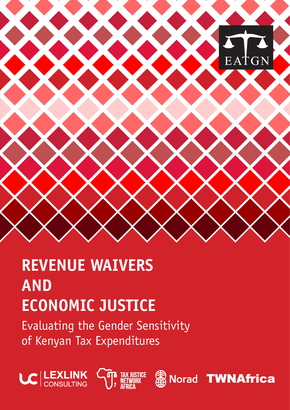
This study examines the gender sensitivity of tax expenditures in Kenya, focusing on their impact on gender equality. Despite neutral wording in tax laws, the research reveals implicit biases that favour men. High capital investments in sectors dominated by men receive substantial income tax incentives, potentially perpetuating gender inequality. Conversely, tax incentives benefiting women, such as progressive tax bands and relief for low-income earners, have limited value. The commendable exemption of essential goods from Value Added Tax (VAT) aims to reduce the tax burden on women, yet fluctuating VAT treatment on critical products introduces pricing instability. Notably, the study finds that tax expenditures predominantly benefit sectors dominated by men, highlighting the need for gender-sensitive tax policies.
